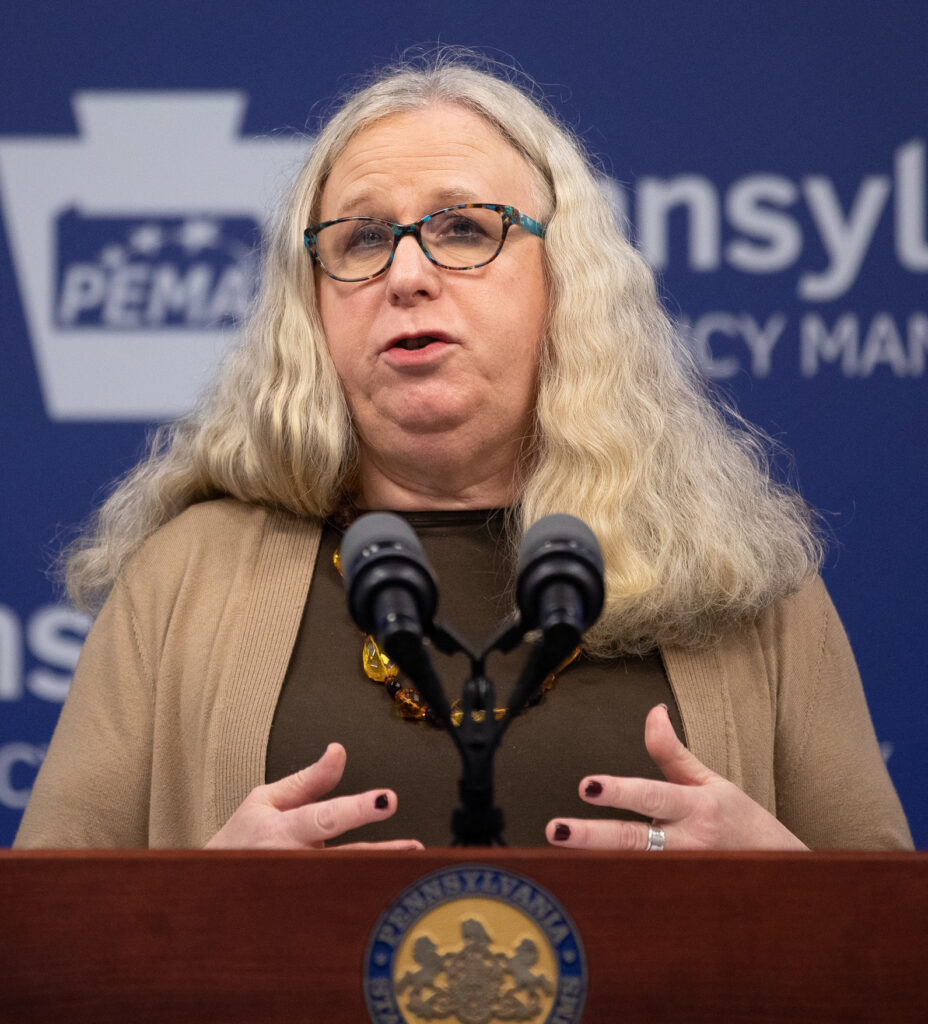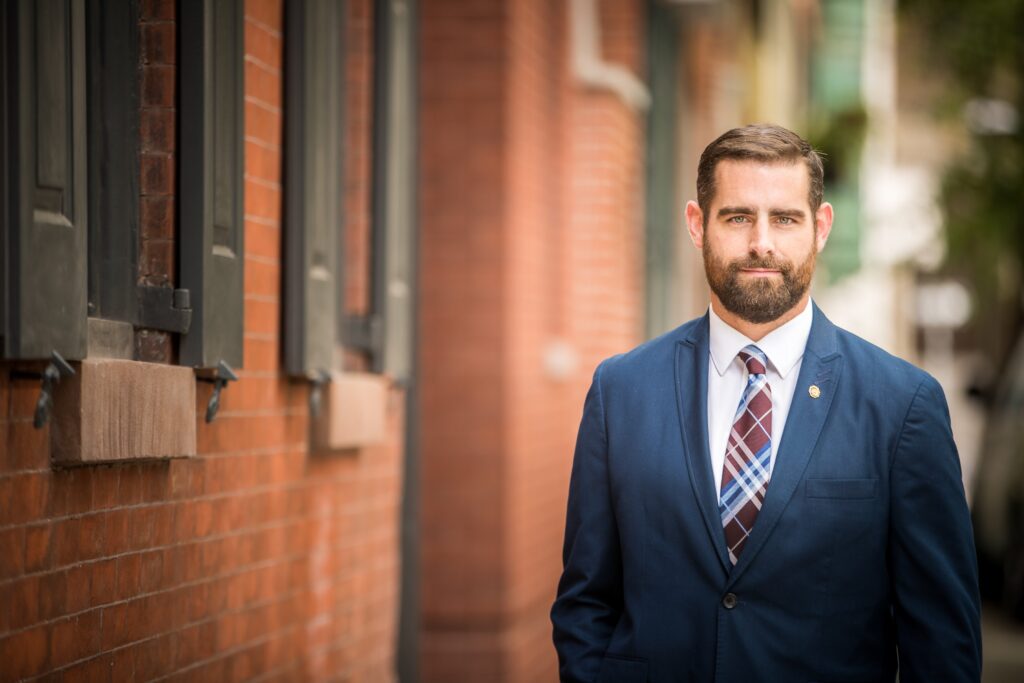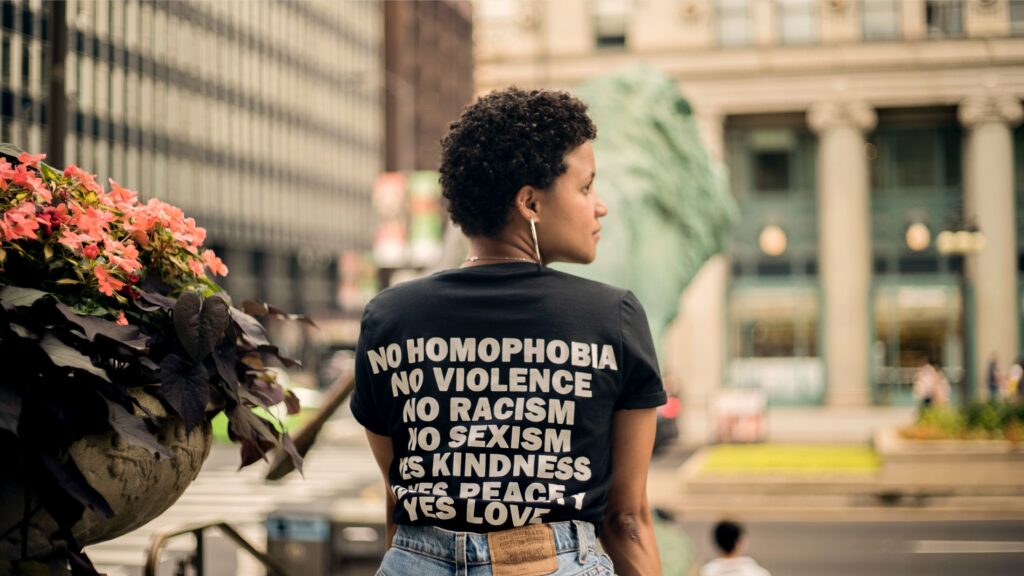What to watch out for in 2022
Here is our recap and also eight essential things to watch for in 2022.
So 2021 was a bad year, in part because so much of the even worse year that was 2020 carried over. The pandemic continued to crush us. The 2020 protests over George Floyd’s murder and all the questions they raised about social justice, and lack thereof, left us emotionally riven but created none of the essential change that was fought for. The endless and exhausting 2020 election resulted in a Biden-Harris win, but Trump’s refusal to concede carried into 2021. A full 75% of Republicans still don’t believe Biden won the election.
Nevertheless, we had high hopes for 2021. Trump was out, Biden was in and COVID vaccines were headed to the states. But 2021 began with the January 6 insurrection—the scariest day since 9/11. It wasn’t just the storming of the Capitol from the outside. It was that 150 Republican House and Senate members, led by House Minority Leader, Kevin McCarthy, tried to invalidate the election.
Only days before McCarthy had lost the Speakership to Nancy Pelosi by a mere eight votes. It took our breath away to think about how the election certification might have gone with McCarthy—who denied Biden had won the election—as Speaker.
Two weeks later, Inauguration Day 2021 dawned, awash in brilliant sunshine. After the ceremony President Biden went back to the White House and issued an executive order protecting LGBTQ Americans. Titled “Executive Order on Preventing and Combatting Discrimination on the Basis of Gender Identity and Sexual Orientation,” the EO begins, “Every person should be treated with respect and dignity and should be able to live without fear, no matter who they are or whom they love.”
On the very first day.
Among Trump’s array of anti-LGBTQ policies were the trans military ban, a 77pp HHS memo denying healthcare at every level to LGBTQ people based on religious freedom laws, restrictions on gender-neutral bathrooms in schools receiving federal monies and even a ban on flying Pride flags at U.S. embassies in June. Trump’s Secretary of State, Mike Pompeo, had made the State Department and USAID (United States Agency for International Development ) into an imbroglio of anti-LGBTQ extremism.

Secretary of Health Dr. Rachel Levine 
Secretary of Transportation Pete Buttigieg
Biden countered all that, appointing a slew of LGBTQ people to various levels of his administration. Pete Buttigieg became the first out gay man sworn into a Cabinet position—Secretary of Transportation. Dr. Rachel Levine became the highest placed out trans person in any administration—Assistant Secretary for Health.
Other out members of the administration included Ned Price, Spokesperson for the U. S. Department of State—the first openly gay person in that post. Karine Jean-Pierre is principal Deputy Press Secretary for the Biden administration. Pili Tobar is Deputy White House Communications Director. Both are the first out lesbians and women of color in their respective roles. Carlos Elizondo, who is openly gay, is Biden’s White House Social Secretary.
The U.S. Supreme Court didn’t deliver for LGBTQ people in 2021. In a 9-0 ruling bound to have a long-ranging impact, the U.S. Supreme Court found the City of Philadelphia violated the First Amendment rights to religious freedom of Catholic Social Services (CSS) in the case of Fulton v. City of Philadelphia. The ruling was another clear victory for the religious right and against LGBTQ people—in this case, would-be foster parents.
The year was mired in the same political fray as 2020–the pandemic and the GOP. When the Omicron variant hit at Thanksgiving, it was another gut-punch. As the ball dropped on Times Square on New Year’s Eve to a reduced crowd, New York saw the highest numbers of new COVID cases since the start of the pandemic.

So what about 2022? Will this be another drop kick from the universe?
Or will this be the year we finally crawl out from under COVID—and the GOP? Here’s a list of what to look for in 2022: the good, the bad and the questionable.
1. Midterms
The best (and possibly worst) of 2022 will be the midterm elections. There are perils in the Senate not passing the Voting Rights Act and in redistricting efforts nationally. But 2022 has some exciting LGBTQ candidates–all progressives—running to make history.
In Oregon, Tina Kotek is the first out lesbian speaker in any state house in the U.S.—a post she first won in 2013. Now Kotek is running for governor of Oregon, a position currently held by the nation’s first openly bisexual governor, Kate Brown. The only other out LGBTQ governor in U.S. history is Jared Polis, governor of Colorado. Kotek could become the nation’s first out lesbian governor.
In Pennsylvania, two out gay men in the state legislature are running for higher office. Democratic state Rep. Malcolm Kenyatta is running for the U.S. Senate and the seat held by Republican Pat Toomey, who is not seeking re-election. Kenyatta would become the first out gay man elected to the Senate and would be the third Black male senator, joining Cory Booker (D-NJ) and Tim Scott (R-SC).

Rep. Brian Sims is running for lieutenant governor and would be the first out LGBTQ person to hold executive office in Pennsylvania. The LGBTQ Victory Fund, which has endorsed Sims, called him “one of the most visible out elected officials in the United States.”
Also in Pennsylvania, Deja Alvarez is running for the Pennsylvania State House in the 182nd district, which includes Philadelphia and is the district currently represented by Sims. If elected, she will become the first out trans member of the Pennsylvania House.
Democrat Kimi Cole is running for lieutenant governor in Nevada. Cole would be the first out transgender statewide elected official in the U.S.
2. 1,000 LGBTQ people take office in 2022
In the November 2021 elections at least 237 LGBTQ candidates were on the ballot, which was an 18.5 percent increase since the last off-year election in 2019, according to the Victory Fund. That also means that in 2022, when those people take office, the U.S. will have hit an historic milestone: There will be more than 1,000 concurrently serving LGBTQ+ officials for the first time in history.
Among those are dozens of people of color, expanding the diversity of representation. The Victory Fund states that there are now just six states in the U.S. without any LGBTQ people currently serving in their legislatures.

3. The Equality Act
The Equality Act as written in 2021 would “amend the 1964 Civil Rights Act and prohibits discrimination based on sex, sexual orientation, and gender identity in areas including public accommodations and facilities, education, federal funding, employment, housing, credit, and the jury system. Specifically, the bill defines and includes sex, sexual orientation, and gender identity among the prohibited categories of discrimination or segregation.”
Also, “The bill expands the definition of public accommodations to include places or establishments that provide (1) exhibitions, recreation, exercise, amusement, gatherings, or displays; (2) goods, services, or programs; and (3) transportation services.”
Additionally, “The bill allows the Department of Justice to intervene in equal protection actions in federal court on account of sexual orientation or gender identity. The bill prohibits an individual from being denied access to a shared facility, including a restroom, a locker room, and a dressing room, that is in accordance with the individual’s gender identity.”
President Biden and Vice President Harris both promised to pass the Equality Act in the first 100 days of their administration. The Equality Act was passed in the House on March 16, 2021–well within that 100 days. The bill has yet to come to a debate or vote in the Senate and no one in the Senate is currently fighting for it, including Senate Majority Leader Chuck Schumer, who has a lesbian daughter.
House Minority Leader Kevin McCarthy, who would be Speaker if the Republicans win the midterm elections, said the Equality Act is just a part of an “onslaught against freedom” from the Biden administration.
While passage of the Equality Act isn’t a cure-all for centuries of discrimination, it certainly offers critical protections that would allow queer and trans people access to social services and healthcare they are currently routinely denied, as well as opening such services to directly focusing on the needs of queer and trans people who are in crisis.
The significance of the Equality Act cannot be overstated. As inequality widens, the Equality Act becomes more elusive–and it’s the only thing that will protect our community as a whole. If Democrats don’t pass the Equality Act in 2022, the bill will expire.
4. Fighting discrimination
Failure to pass the Equality Act runs parallel to the GOP pushing anti-LGBTQ legislation. Anti-LGBTQ legislation has become a focal point of the Republican Party since January 2021, suggesting that the new culture wars will pivot off LGBTQ discrimination.
More than 60 anti-LGBTQ bills are being considered across the country, according to the American Civil Liberties Union (ACLU), which lists anti-LGBTQ rights laws in proposal. These bills fall under a range of categories—all discriminatory and dangerous to LGBTQ lives. They are wide-ranging, including overall restriction of health care and social services to LGBTQ people, so-called “bathroom bills,” single-sex facility restrictions, bills excluding trans-identified youth from athletics, restrictions on identification documents, religious exemption bills, religious exemptions in heath care implicating LGBTQ people, religious exemptions in adoptions and foster care, religious exemptions in schools and student organizations, and bills preempting local protections against discrimination.
Additionally, the recent spate of anti-abortion laws bode ill for LGBTQ civil rights and civil liberties. Overturning same-sex marriage is a stated goal of the Republican party platform, as is overturning Roe v. Wade. These “culture wars” issues will likely play a role in the 2022 midterms and definitely will factor in the 2024 presidential election.
5. Ban Conversion Therapy
Canada has banned conversion therapy, a widely discredited practice that claims to change a person’s sexual orientation or gender identity. But conversion therapy remains legal in the U.S. and some states and municipalities even have laws banning the banning of the practice. While some states ban the practice for minors, none ban it for adults.
According to a study by the Williams Institute at the UCLA School of Law, nearly 700,000 LGBT adults reported having undergone conversion therapy. The Williams Institute also reports that conversion therapy heightens the risk for suicide.
NCLR is also working against conversion therapy with their “Born Perfect” project.
In 2012, the Pan American Health Organization (PAHO) noted that conversion therapies not only had no medical justification but also represented a severe threat to the health and human rights of the affected persons.
In 2016, the World Psychiatric Association reportedly found “no sound scientific evidence that innate sexual orientation can be changed.”
In 2020, the Independent Forensic Expert Group (IFEG) of health specialists declared that conversion therapy is “a form of deception, false advertising and fraud.”
And now the UN wants to ban the practice globally. Only seven countries currently make conversion therapy illegal. According to a UN report currently before the UN Human Rights Council, “Conversion therapy is built on the false premise that it can alter the sexual orientation of gender diverse people, and many more countries around the world need to recognize its dehumanizing and deeply corrosive impact.”

6. We’re here and so much more queer
More Americans are identifying as LGBTQ than ever, a new Gallup poll finds, and that is going to change the landscape in 2022 in a myriad of ways, including voting and making LGBTQ people more visible in politics, protests and the arts.
Gallup says, “The identity question asked in 2020 offers a greater level of detail than the question asked in previous years. [2011 through 2017; there were no polls on this taken in 2018 or 2019] Now, respondents have the ability to more precisely indicate aspects of their sexual orientation or gender identity. In addition to being able to identify whether they are lesbian, gay, bisexual or straight, respondents may also specifically identify whether they are transgender.”
A majority of LGBT Americans (54.6%) identify as bisexual. About a quarter (24.5%) identify as gay, 11.7% as lesbian and 11.3% as transgender.
Gallup’s poll shows younger Americans are increasingly likely to consider themselves part of the LGBTQ community: Nearly 16 percent of Generation Z, those 18 to 23 in 2020, consider themselves something other than heterosexual. That compares to just 2 percent of Americans 56 and older.
Yet as journalist and activist Keith Boykin, 56, told Queer Forty in his December cover story, “As far as I can tell, queer life doesn’t end at 40, 50, 60, or any particular age. It only ends when you stop exploring who you are and the world around you.”
And designer Debbie Millman, 60, told Queer Forty, “Every decade is getting better. I am more cognizant of time. My 60s are about to start, but I wasn’t happy until I was in my 40s and I didn’t start leaning into happiness until my 50s.”
So Gen Z may be picking up the phone for the surveys, but there are many people coming out late and coming out proud, too.

7. LGBTQ Olympians
In 2021, there were more LGBTQ Olympic athletes in the Tokyo summer Olympics than ever before: 168. Those athletes included the first out trans and nonbinary contestants. Lesbian and gay contestants were among the medalists, including Americans Sue Bird and Megan Rapinoe.
The winter Olympic games will run from Feb. 4 to Feb. 20 in Beijing, China. There are fewer events in the winter games, which means fewer athletes than in the summer. In 2018, Outsports reported there were 15 publicly out LGBTQ athletes at the winter Olympics in Pyeongchang, South Korea, including out men for the first time. That number could double or triple in Beijing.
The consequential statement of coming out at the Olympics cannot be overstated–particularly not when the U.S., U.K. and Japan have withdrawn their support due to China’s civil rights abuses.
8. Gay Games Prep
The first Gay Games was held in San Francisco in 1982–2022 is the 40th anniversary of the first Gay Games. Now is the time to enter for Gay Games 11 in Hong Kong in 2023. The Gay Games is a worldwide sport and cultural event that promotes acceptance of sexual diversity, featuring LGBT+ athletes, artists and other individuals.






